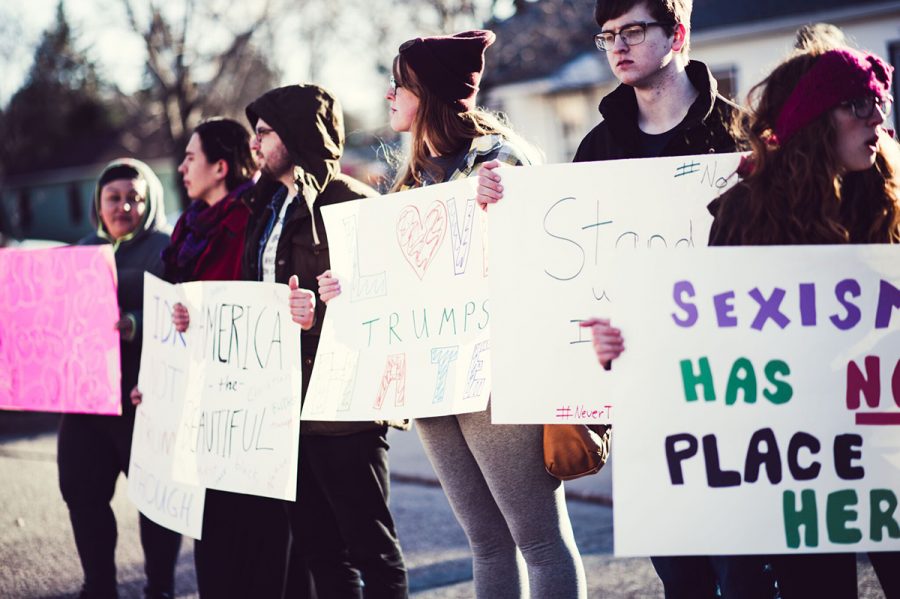Inauguration day crowd missing faces of roughly 60 democratic lawmakers
Legislators skip President Donald Trump’s inauguration in favor of doing anything else
More stories from Erica Jones
After countless nationwide marches, riots and other demonstrations, it should come as no surprise: some people simply don’t want Donald Trump to be this country’s new president, including several lawmakers.
On President Trump’s inauguration day last Friday, thousands of people came out to protest in the streets of Washington D.C. The following day, Women’s Marches occurred worldwide in coordination with the massive Women’s March on Washington.
Needless to say, Trump and his administration heard the world utter its cries of rebellion and displeasure from right in their backyard to halfway across the globe. Perhaps what hit closest to home, however, was the fact more than 60 lawmakers announced their decision to boycott the inauguration.
According to The Washington Post, at last count, 67 democratic legislators declared they would not attend the inauguration ceremony – a number that sharply increased from around two dozen after Trump’s tweet claiming that Congressman John Lewis (D-GA) was nothing more than “talk, talk, talk.” The Washington Post article includes a list of those not in attendance, along with their statements about why they will not go.
Of these lawmakers, democratic representative Mark Pocan of Wisconsin said he would not attend, in part because of Trump’s “offensive Tweets about a national hero Rep. John Lewis.”
Pocan said in the end of his remark, “It is time for Donald Trump to start acting like President Trump, not an immature, undignified reality star with questionable friends and a Twitter addiction. I hope for better, but I will not hold my breath.”
While it is necessary for Trump to step up to the plate and focus on his duties as president rather than trying to attack the character of others, this behavior is partly what got him noticed as a candidate during the election season in the first place. He’s bold and outspoken, isn’t shy about his thoughts and feelings and doesn’t consult anyone before posting comments on the Internet.
Simply put, he’s unfiltered. Sure, he Tweets more than a teenage girl with her first smartphone, but his 140-character messages continue to get him noticed. As seen in the number of representatives boycotting his swearing in, the attention he receives is not always positive. This negative attention isn’t just coming from the Democratic Party. According to CNN, 30 Republican congresspeople signed an anti-Trump letter, saying they would not vote for him for several reasons. Among these representatives were Tom Petri (R-WI) and John “Joe” Schwartz (R-MN).
At this point, the question is not whether Trump is mature enough to handle the presidency. It’s too late for that; he’s already here. The question at hand is whether lawmakers avoiding his inauguration puts them at his level. Does the fact they didn’t attend mean they’re playing the same childish games?
It’s important to note is the reasoning behind a lawmaker’s absence. Many democratic representatives said they were disappointed with Trump’s attacks against John Lewis, a motion to stand with their fellow congressman. Some said they would instead stay and serve their constituents, a convenient excuse. Others said they would be praying – for their communities, their country, their leaders and their people, sharing a message of hope while making their disapproval clear.
One, Representative Maxine Waters (D-CA) tweeted she would never waste her time attending the inauguration or “any activities associated w/ @realDonaldTrump.”
While there is no rule against boycotting an inauguration, it is generally unexpected, which is why this issue has garnered so much media attention. America is a land where people (including members of Congress) have rights; in fact, the First Amendment says people have a right to peaceably assemble or petition the Government for a redress of grievances.
Other than the potential backlash of Trump’s Tweets, these congresspeople can receive no punishment for their actions. Each has their own personal opinion of the new president and if they don’t like what he stands for, they are free to boycott the single day of his inauguration and instead stand for what they believe in. After all, they still have to work under him for the next four years, an inescapable truth.


